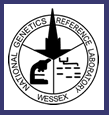Real
time quantitative PCR (RQ-PCR) for BCR-ABL is used around
the world as a sensitive and specific procedure for monitoring
the response of patients with chronic myeloid leukaemia (CML)
and Philadelphia-positive acute lymphoblastic leukaemia (Ph+
ALL) to treatment. Although attempts towards standardisation
of the laboratory processes have been made, there is still
considerable variation in results within the UK and elsewhere
as demonstrated by the findings of recent pilot NEQAS trials.
To help improve the comparability of results, investigators
at the Bethesda CML meeting held in October 2005 proposed
a new international scale (IS) for BCR-ABL RQ-PCR measurements
which is anchored to two key levels used in the IRIS study,
namely a standardised baseline defined as 100% BCR-ABLIS
and major molecular response (3 log reduction relative to
the standardised baseline) defined as 0.1% BCR-ABLIS. Three
housekeeping genes (ABL, BCR and GUSB) were recommended to
control for assay variables, although the group recognised
that other control genes might also be used. Realisation
of the IS is being pursued internationally by two parallel
strategies: (i) development and validation of conversion
factors and (ii) development of accredited reference reagents.
In order to facilitate this process in the UK and Ireland,
we held a meeting in London on the 10th January 2008 which
was attended by more than 50 people, the great majority of
whom were from regional genetics or haematology laboratories
that were either already testing for BCR-ABL by RQ-PCR or
were planning to establish a service in the near future.
Prof Andreas Hochhaus
was the guest speaker and gave overviews of molecular monitoring
for CML, including the detection
and significance of secondary BCR-ABL mutations associated
with resistance to imatinib or second line tyrosine kinase
inhibitors (dasatinib and nilotinib). Other talks were given
by Jane Holden (UK NEQAS), David Grimwade (Guy’s),
Mike Griffiths (Birmingham), Jo Mason (Birmingham), Jamshid
Sorouri Khorashad (Hammersmith) and Nick Cross. A survey
of laboratory practices revealed considerable variation in
methodology and quality assurance between the 20 laboratories
currently testing for BCR-ABL, and it was agreed that more
detailed quality control testing rounds would be initiated
and moves towards best practice guidelines should be made
in association with the CMGS and BSH. The group will continue
to meet at regular intervals in order to facilitate this
process.
